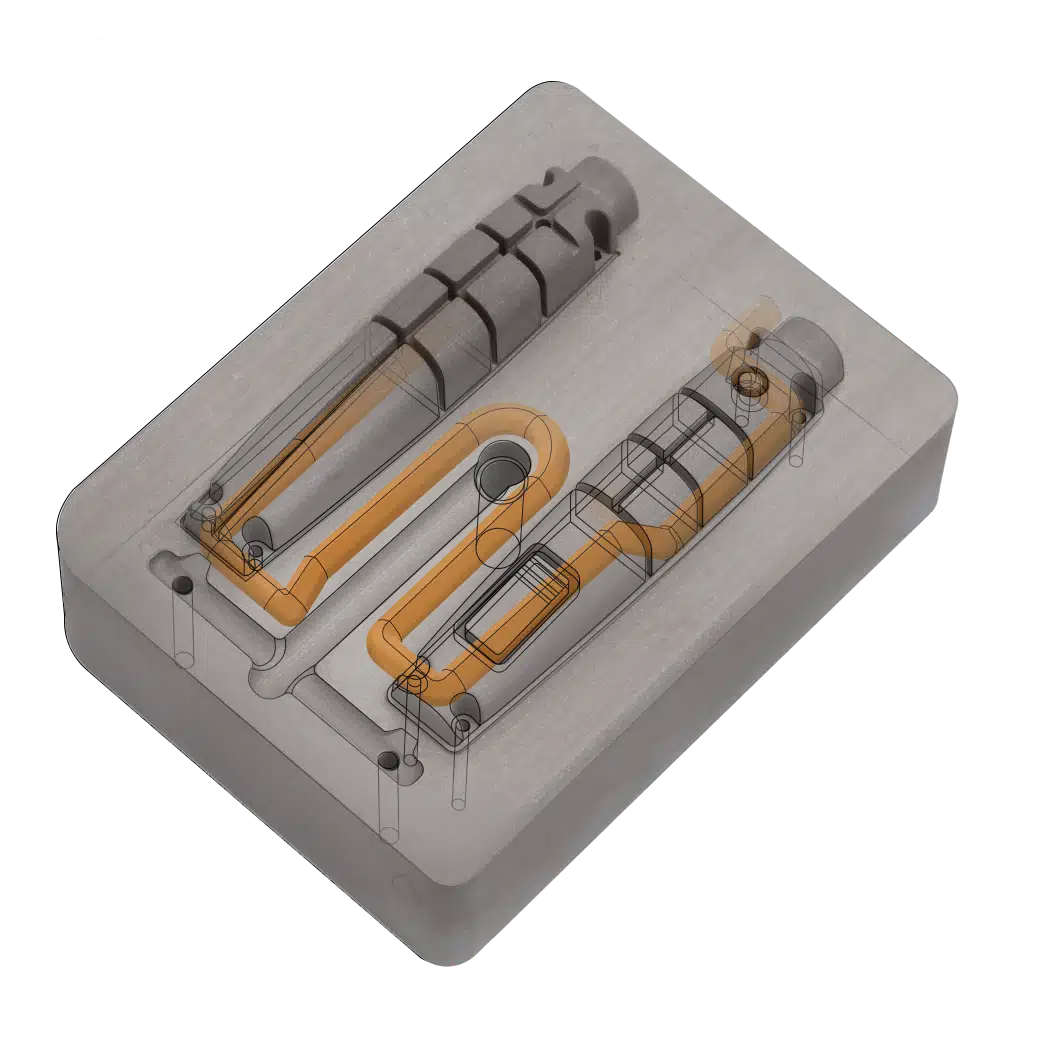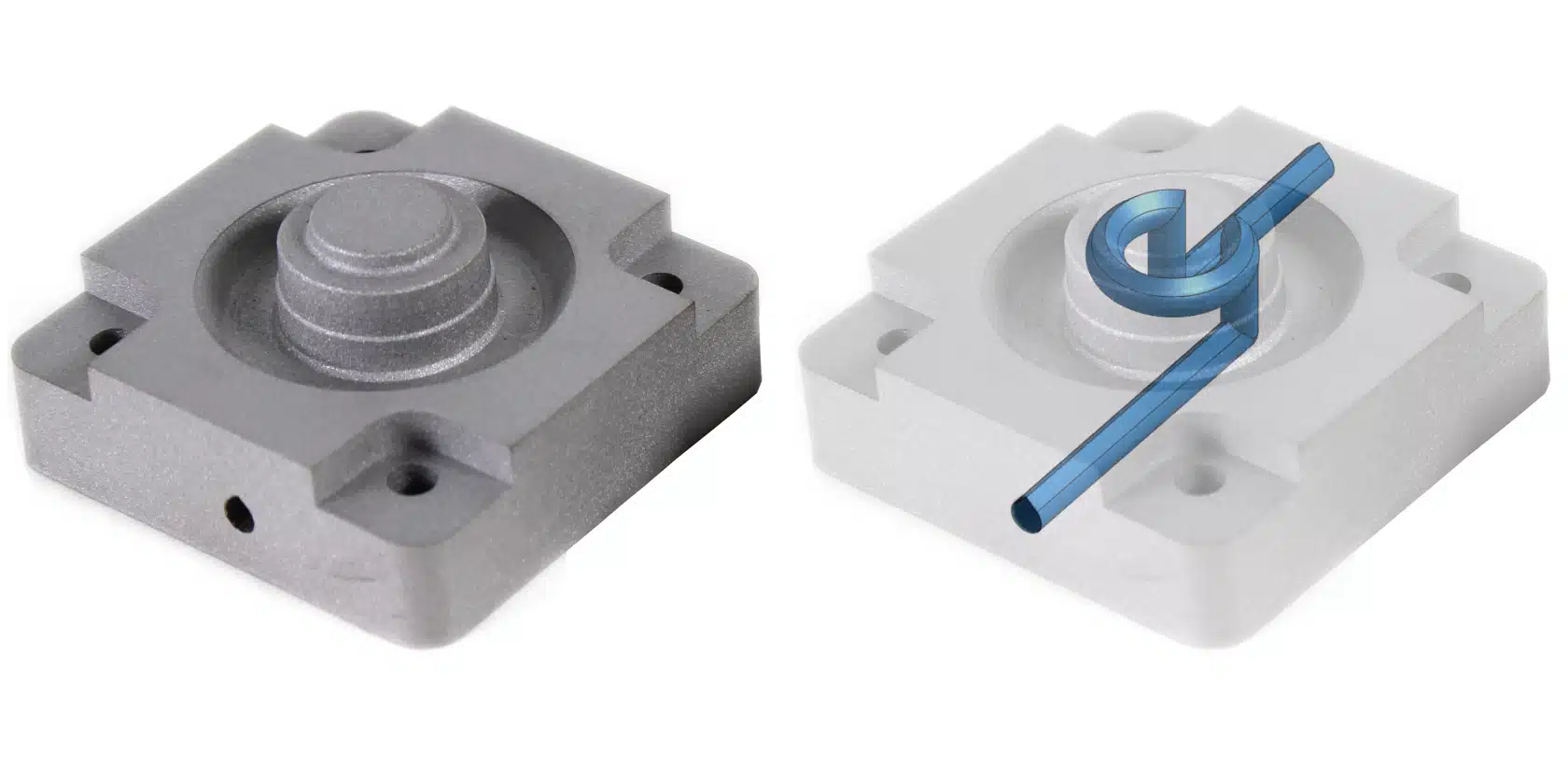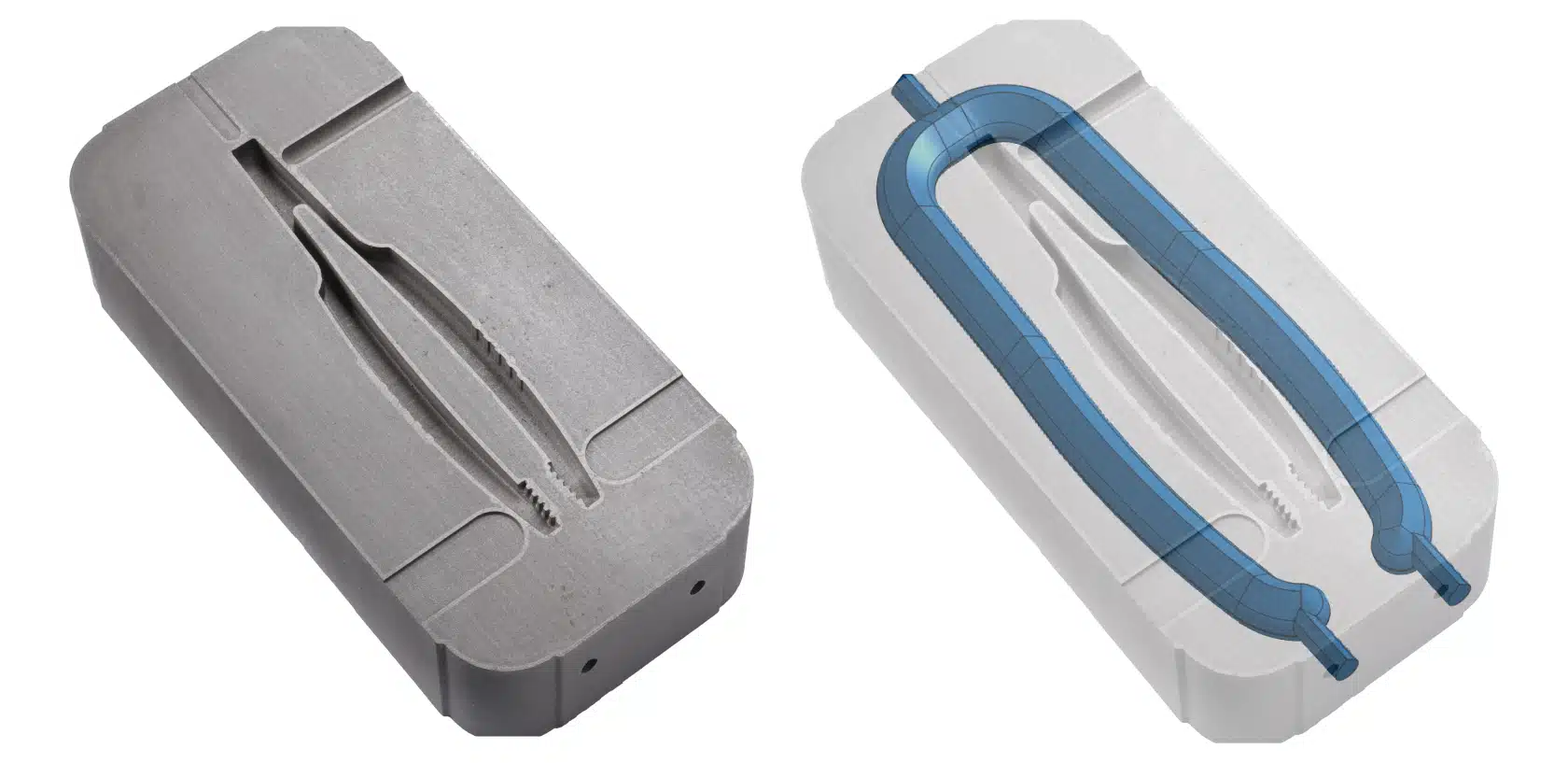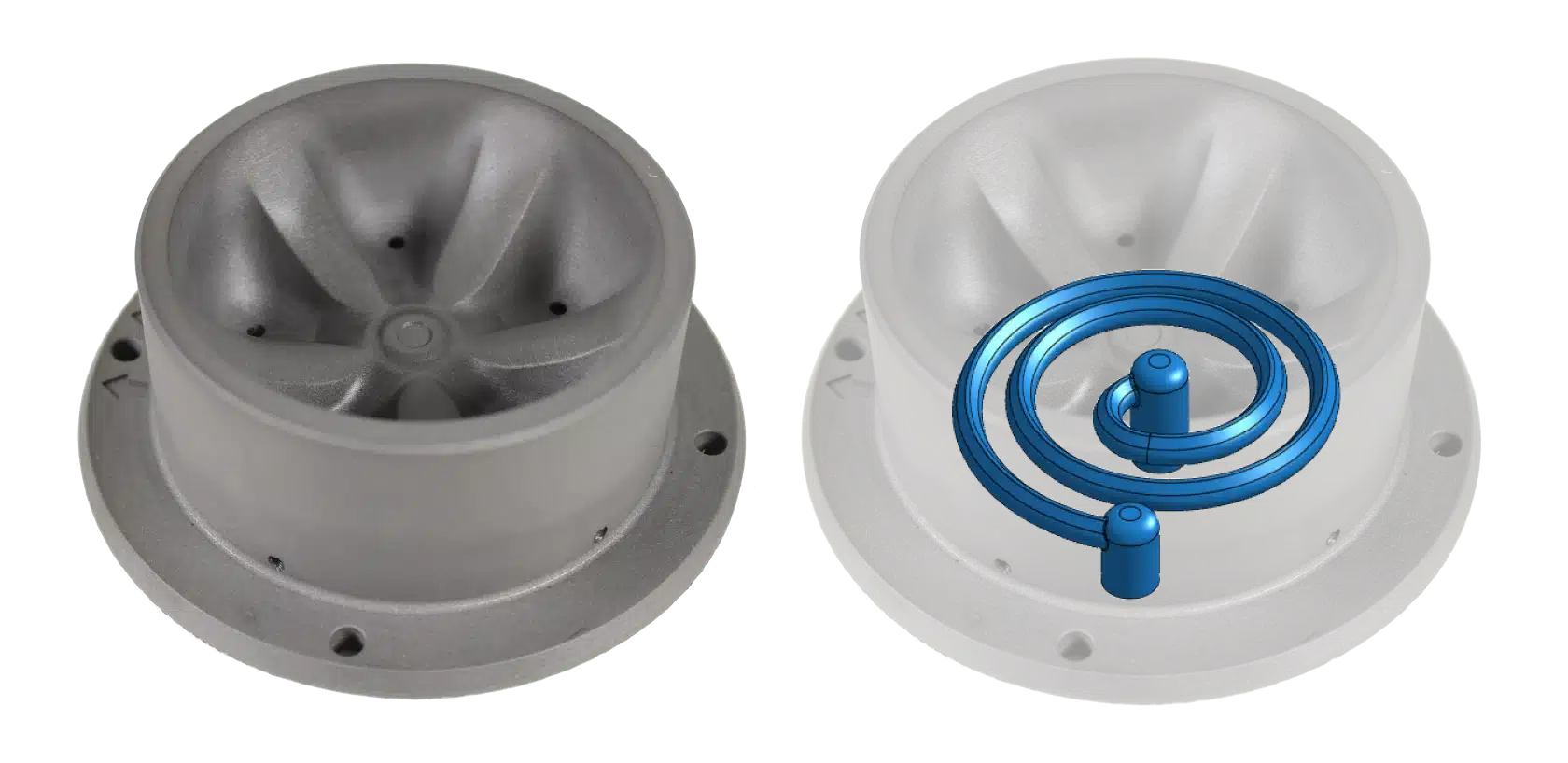
Conformal cooling has offered great promise, but producing it with other technologies has historically come with high costs and long lead times.
Mantle unlocks this opportunity for all tools. With shortened tooling lead times and lower costs than traditional toolmaking, conformal cooling can now be added to any tool with Mantle.
REDUCE
CYCLE TIMES
ENHANCE
PART QUALITY
IMPROVE
PROCESS STABILITY
SAVE
TIME AND COST

Conformal cooling refers to the design and integration of cooling channels within a mold or die that follow the shape or contours of the mold cavity. Unlike traditional straight-drilled cooling channels, which are limited to linear paths, conformal cooling channels are typically created using advanced manufacturing methods such as 3D printing or brazing, allowing them to follow complex, curved geometries without the limitation of manufacturing methods like drilling.

Brazing and other metal 3D printing technologies add time and cost. Mantle creates new opportunities for conformal cooling while reducing lead times and costs.
Improved cooling efficiency significantly reduces mold cycle times.
Cooling is the longest part of the molding cycle, so even small savings during the cooling cycle can dramatically reduce cycle times.
A reduction in cycle time, allowing manufacturers to produce more parts in a given timeframe to meet production demands while increasing total shop throughput.
Ensure uniform, balanced cooling, minimizing residual stresses, warpage, and distortion in molded parts.
The result is a molded part with improved dimensional accuracy, fewer defects, and enhanced surface finish.
Greater design flexibility in molded plastic parts expands the design possibilities for the molded part, including the ability to mold thin or thick sections that would otherwise warp with traditional cooling.
Faster production cycles lead to lower energy consumption, reduced machine idle time, and increased machine utilization.
The improved part quality reduces the need for reworking or scraping, saving material costs.
Conformal cooling maintains consistent temperatures throughout the mold, reducing temperature variations affecting part dimensions, material flow, and overall process stability.
That stability leads to improved repeatability and consistency when producing high-quality parts. This improved stability is especially critical when molding hard-to-work plastics, like bio-based or highly-filled materials.










Traditionally, creating tools with conformal cooling required complex and expensive processes like brazing or the assembly of multiple tool segments. Traditional metal 3D printing technologies like DMLS have performed well with conformally cooled mold inserts but have also come with prohibitively high costs and long lead times. Mantle’s automated toolmaking technology eliminates these barriers by producing mold inserts faster and more affordably than traditional toolmaking processes, incorporating additional conformal cooling features at no charge.
Mantle 3D Systems, LLC
1950 Cesar Chavez St.
San Francisco, CA 94124
415.655.3555